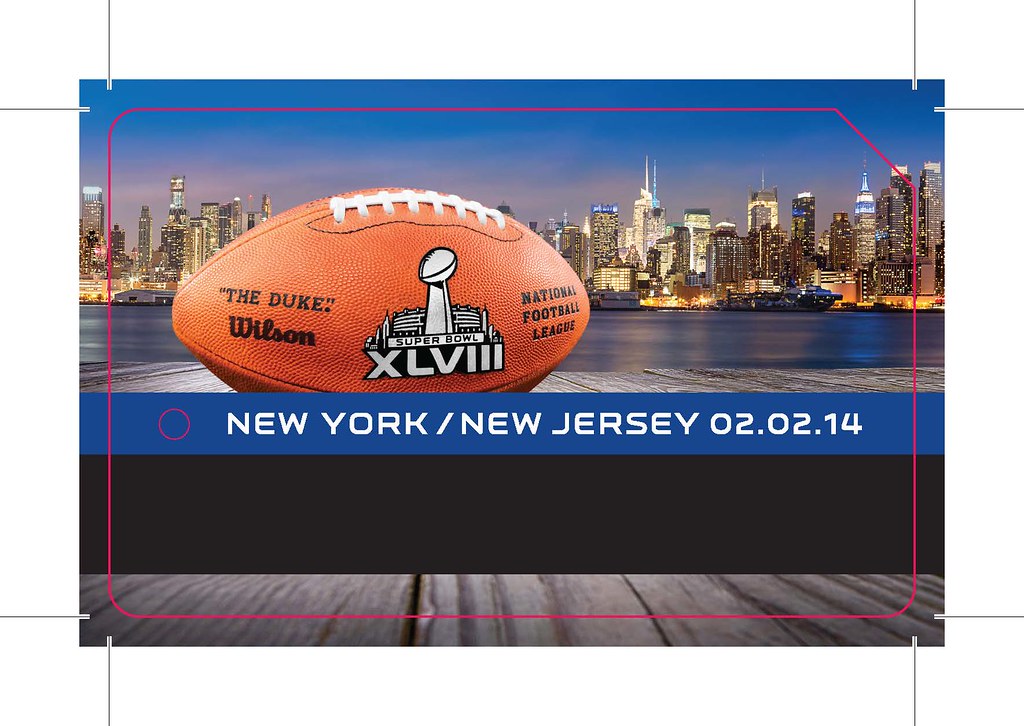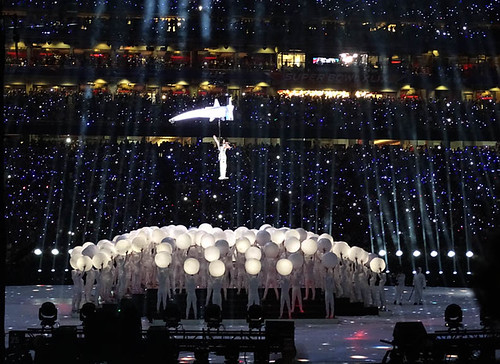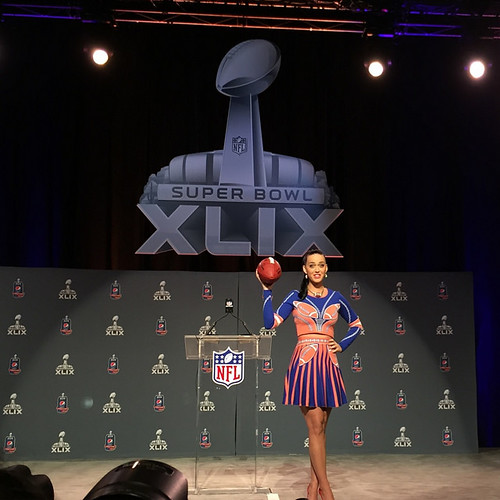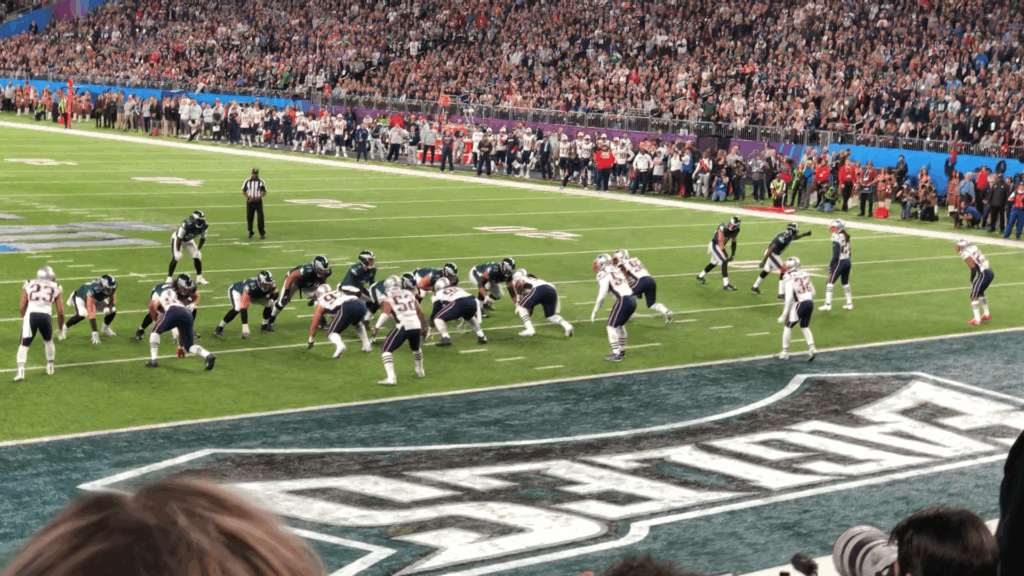
The Super Bowl, America’s premier sporting event, annually draws millions of devoted fans, both to the stadium and to celebrations worldwide. This monumental gathering, characterized by fervent excitement and substantial financial investment in tickets, merchandise, and travel, unfortunately, also creates an environment ripe for exploitation by malicious actors. As eager consumers navigate the flurry of last-minute deals and sought-after experiences, a pervasive network of scams emerges, threatening to turn a dream event into a costly nightmare.
Experts and law enforcement agencies consistently warn that whenever significant amounts of money change hands among a large populace, scammers inevitably appear in force. The Super Bowl is no exception to this grim reality, with reports indicating that fans can expect to pay thousands of dollars for tickets, making them prime targets for various deceptive schemes. The scale of potential losses, coupled with the emotional investment of fans, underscores the critical importance of vigilance and informed decision-making.
This article aims to provide a meticulous overview of the prevalent scam tactics associated with the Super Bowl, drawing on insights from security experts and consumer protection agencies. By dissecting the methods employed by fraudsters, from sophisticated digital deceptions to age-old con artist tricks, we endeavor to equip fans with the knowledge necessary to protect their hard-earned money and ensure their Super Bowl experience remains untainted by fraud. Understanding these mechanisms is the first line of defense against becoming a victim.

1. **Fake Websites and URL Spoofing: The Digital Facade of Deception**One of the most insidious tactics employed by scammers involves the creation of fraudulent websites designed to mimic legitimate ticketing platforms or merchandise retailers. These deceptive sites often appear in search engine results, particularly on platforms like Google, leading unsuspecting consumers directly into a trap. Security expert Patrick McCall of McCall Risk Group Inc. advises extreme caution when encountering advertisements online, emphasizing the necessity of verifying the authenticity of any website before proceeding with a purchase.
Scammers meticulously craft these counterfeit sites to replicate the visual appearance of reputable entities such as Ticketmaster or StubHub. The sophistication of these imitations means that at first glance, everything may seem legitimate, including correct branding and layout. However, the underlying purpose is to redirect users to a fraudulent platform where personal and financial information can be harvested, and payments can be illicitly processed without delivering any actual goods or services.
A critical preventative measure highlighted by experts is to directly type the official URL into the browser’s address bar rather than relying on links from search engine results or pop-up banners. This direct navigation circumvents the risk of being diverted to a spoofed site. Furthermore, consumers are urged to meticulously check the spelling in the web bar, as scam artists frequently employ minor changes to an actual website’s URL—a practice known as spoofing—to create a false sense of legitimacy, often featuring subtle misspellings or alternative domain extensions.
The Office of Attorney General’s Bureau of Consumer Protection advises consumers against clicking on banner ads or pop-ups, even on what appears to be a legitimate website, if those ads promise to take them to a third-party site. Departing a reputable website in favor of discounted tickets or other promises elsewhere effectively forfeits all protections and guarantees associated with the original site, leaving consumers vulnerable to the fraudulent intent of the third party. Therefore, unwavering adherence to official channels and rigorous URL verification remains paramount.

2. **Counterfeit Tickets and Merchandise: The Allure of Illicit Goods**Beyond fraudulent websites, the physical manifestations of Super Bowl scams often involve counterfeit tickets and merchandise. The immense demand for Super Bowl access and memorabilia creates a lucrative market for bad actors producing and distributing fake items. These counterfeit goods not only represent a financial loss for the consumer but also lead to significant disappointment, as holders of fake tickets are denied entry to the event.
Homeland Security Investigations, through its Operation Team Player program, actively combats the influx of counterfeit merchandise during major events like the Super Bowl. Since 2013, this program has seized over $455 million worth of fake goods, underscoring the pervasive nature of this problem. For consumers, the key to avoiding counterfeit merchandise lies in sticking to well-known and reputable vendors, resisting the urge to seek out deals that appear too good to be true through obscure channels.
In the context of tickets, unauthorized resellers are a significant concern. While the temptation to secure tickets through third-party sites or search engine deals might be strong, experts strongly advise utilizing authorized ticket resellers. The NFL, in an effort to protect fans, has partnered with trusted vendors such as TicketMaster, SeatGeeks, and Sports Illustrated Tickets to form the NFL Ticket Network. These partners ensure legitimacy and accountability throughout the purchasing process.
Identifying counterfeit merchandise often requires attention to detail. Homeland Security suggests looking for overt signs of shoddy production, including sloppy stitching, missing security labels, or irregular markings on apparel. For tickets, verification is more complex, emphasizing the need to purchase only from official and verified sources. The only thing worse than missing the game, as one expert notes, is missing the game *and* being out a substantial amount of cash due to a fraudulent ticket.

3. **“Too Good To Be True” Offers: The Siren Song of Unrealistic Savings**A universal red flag in the realm of scams, particularly around high-demand events like the Super Bowl, is the offer that appears “too good to be true.” Scammers frequently entice victims with promises of massive discounts, often 50% off or more, on tickets, travel packages, and merchandise, especially as the event date approaches. Such significant price reductions, particularly for a highly sought-after commodity like Super Bowl tickets, should immediately trigger skepticism.
These seemingly incredible deals are a core psychological tactic, playing on a consumer’s desire for a bargain and fear of missing out. Whether it is deeply discounted game tickets, or comprehensive travel packages promising airfare, accommodations, and tickets at incredibly low prices, these offers are rarely legitimate. Attorney General Dave Sunday of Pennsylvania and Missouri Attorney General Andrew Bailey have both warned against these types of deals, stating that if an offer sounds implausible, it most likely is.
Legitimate organizations and authorized sellers rarely offer such steep, last-minute price cuts for an event of the Super Bowl’s magnitude. The market dynamics of such a high-demand event typically drive prices up, not down, as game day approaches. Therefore, any communication—whether via email, social media, or direct message—touting unrealistic savings should be treated with extreme caution and subjected to rigorous verification against official sources.
The advice to “trust your common sense” resonates deeply here. Consumers are strongly encouraged to conduct their due diligence and thoroughly investigate the seller before committing to any purchase that involves an unusually low price point. The motivation behind such offers is almost invariably to defraud, either by collecting payment without delivering the promised goods or by obtaining personal financial information for illicit purposes. A healthy dose of skepticism is perhaps the most effective tool in a fan’s arsenal against these enticing, yet ultimately deceptive, offers.

4. **Phishing and Smishing: The Digital Lures of Impersonation**Phishing and smishing represent broad categories of scam tactics that leverage fake communications via email and text messages, respectively, to impersonate legitimate entities. The objective of these scams is to trick recipients into clicking on malicious links, which can lead to fraudulent websites, or to divulge sensitive personal and financial information. During the Super Bowl season, these messages often take the form of fake ticket confirmations, promotional offers, or exclusive Super Bowl deals.
Key indicators of phishing and smishing attempts include offers that seem overly generous or urgent, demanding immediate action. Messages frequently contain a limited-time offer or create a sense of urgency to pressure recipients into hasty decisions without adequate scrutiny. Critically, these scams will often ask for personal information, such as names and addresses, or, more alarmingly, financial details like credit card numbers or banking information.
The fundamental rule for safeguarding against these digital lures is never to click on an unsolicited link or to send sensitive details over email or text. Any offer or ticket detail received through these channels should be independently verified by directly visiting the official website of the NFL or the purported vendor. For instance, if a message claims the NFL is running a contest, a consumer should navigate directly to www.nfl.com and confirm the contest’s existence there, rather than clicking a link embedded in the message.
Beyond the content, technical clues can also reveal a scam. Hovering a mouse cursor over the anchor text of a link can reveal the true destination URL, which often differs from the displayed text. Additionally, scammers may embed grammatical errors or inconsistencies in their messages, which, while sometimes subtle, serve as tell-tale signs of a non-legitimate source. Remaining alert to these digital nuances is crucial for preventing compromise through these pervasive communication-based scams.

5. **AI-Powered Scams: The Next Frontier of Deception**The advent of artificial intelligence (AI) has ushered in a new, more sophisticated era for phishing and smishing scams, making them increasingly difficult to detect. Michael Scheumack, Chief Innovation Officer at IdentityIQ, highlights that AI-powered phishing attacks leverage real-time data mining to craft highly personalized and convincing messages. These advanced attacks can manifest as SMS messages, emails, and even live phone calls that mimic familiar voices, thereby significantly enhancing their perceived authenticity.
AI’s capability to analyze vast amounts of data allows fraudsters to create highly targeted and individualized deceptive content. This personalization makes the scam messages far more persuasive, as they might reference specific aspects of a victim’s online activity or personal details, making it appear as though the communication is genuinely tailored for them. The goal is to lower a victim’s guard by creating an illusion of prior engagement or relevance.
Furthermore, AI-powered phishing websites can adapt dynamically to a user’s browsing habits. If a scam link is clicked, the fraudulent site it directs to might display content relevant to the user’s recent searches, mirroring their interests and making the fake site appear even more legitimate. This adaptive nature of AI makes distinguishing between authentic and deceptive sites a significant challenge, as the traditional red flags of generic content or irrelevance are minimized.
Nisos, a managed intelligence company, has observed scammers using image editing software and AI tools to create fake tickets and generate documents that mimic legitimate receipts, complete with stolen or forged barcodes. They also leverage automation and AI to identify and target victims on social media platforms based on language used in posts, such as buzzwords like #SuperBowl or #LookingForTickets. This advanced technological integration underscores the need for heightened skepticism and a reliance on official, verified channels for all Super Bowl-related transactions, as AI-enhanced deceptions are designed to exploit human trust with unprecedented precision.

6. **Targeted Outreach and “You’ve Been Selected” Scams: Personalized Traps**Closely related to the broader category of phishing, targeted outreach scams specifically employ personalized messages to create a sense of exclusivity and individual fortune. Consumers may receive messages proclaiming, “You’ve been selected to win Super Bowl tickets!” or “Special fan offers just for you!” These communications often contain personalized details, sometimes even referencing recent online activity, to bolster the illusion of authenticity and make the recipient feel specially chosen. Marva Bailer, a business strategist, notes that such tactics are designed to add to the authenticity of the scam by making the interaction feel highly relevant and tailored.
The psychological impact of being “selected” or offered a “special” deal is powerful, often overriding caution. Scammers capitalize on this by making the victim feel unique and fortunate, distracting them from the inherent risks. These messages are carefully crafted to appear as genuine opportunities, making it difficult for individuals to discern their fraudulent nature, especially amidst the excitement surrounding a major event like the Super Bowl.
Experts advise against engaging with unknown sources, particularly if consumers have not explicitly opted into communications from these groups. Legitimate sweepstakes and promotional offers from official organizations typically have public entry mechanisms and clear, verifiable terms and conditions. Unsolicited messages that appear out of the blue, promising extraordinary rewards, should therefore be met with immediate suspicion and scrutiny.
The insidious nature of these personalized traps lies in their ability to bypass a consumer’s initial skepticism by appealing directly to their ego or desires. By weaving in details that seem specific to the individual, scammers aim to establish a false sense of rapport and credibility, paving the way for further fraudulent requests, such as asking for personal financial information or directing them to fake payment portals. The ultimate protection against such scams involves verifying any enticing offer through official and widely publicized channels, rather than trusting the word of an unsolicited message.

7. **Deceptive Payment Requests: Safeguarding Financial Transactions**The method of payment chosen for Super Bowl-related purchases constitutes a critical juncture in a consumer’s defense against fraud. Security expert Patrick McCall explicitly advises against payment methods such as Venmo, Cash App, cash, or gift cards, underscoring their inherent lack of protection for the buyer. The immediacy and irreversibility of these transactions often leave victims with no recourse when goods or services fail to materialize.
Conversely, the use of credit cards for ticket purchases and other transactions is strongly recommended due to the robust protections they offer. Credit card companies typically provide mechanisms for disputing fraudulent charges, effectively serving as a vital layer of security against illicit activities. This protection is a stark contrast to alternative payment systems, which frequently offer minimal to no recourse once funds have been transferred.
Further emphasizing this crucial distinction, Attorney General Dave Sunday’s office in Pennsylvania advises consumers to remain wary of sellers who request payment in gift cards, money orders, cryptocurrency, or wire transfers, particularly over the phone. These methods are common conduits for scammers because they are difficult to trace and retrieve. Adhering to established payment protocols, prioritizing credit card transactions, and scrutinizing payment requests are fundamental steps in securing financial integrity.

8. **Social Media Scams: The Allure of Illicit Offers**Social media platforms have emerged as a pervasive conduit for Super Bowl scams, with fraudsters actively leveraging the excitement to ensnare unsuspecting fans. Managed intelligence company Nisos has documented how scammers utilize these channels, including X (formerly Twitter), Facebook, and Instagram, to target victims. These malicious actors often employ automation and artificial intelligence to identify individuals using specific buzzwords such as #SuperBowl or #LookingForTickets in their posts, thereby creating highly targeted solicitations.
One prevalent tactic involves offering “free” merchandise or exclusive Super Bowl swag, requiring only a nominal payment for shipping or processing. Consumers are cautioned against such offers, as legitimate giveaways rarely necessitate upfront payment for shipping. Furthermore, the act of divulging personal or financial information to strangers on social media, even for a seemingly insignificant item, carries substantial long-term risks, potentially exposing individuals to identity theft or further fraudulent schemes.
Scammers on social media frequently employ pressure tactics, claiming limited ticket availability or an imminent transaction with other eager buyers, to compel rapid decisions without due diligence. They may also resort to emotional appeals or offer easily fabricated “proof-of-purchase” documents, such as receipts, which can be generated using advanced editing software and AI tools. The overarching recommendation from experts is to entirely avoid purchasing tickets through social media platforms, as these unofficial channels significantly elevate the risk of financial loss and disappointment.

9. **The Peril of Unauthorized Resellers and Unverified Sellers**Beyond the digital storefronts of fraudulent websites, the marketplace for Super Bowl tickets and merchandise is often infiltrated by unauthorized resellers and individual sellers lacking verifiable credentials. The temptation to secure tickets through third-party sites or obscure search engine deals can be compelling, yet this approach exposes consumers to significant risk. The National Football League (NFL) has proactively addressed this by partnering with trusted vendors—including TicketMaster, SeatGeeks, and Sports Illustrated Tickets—to form the NFL Ticket Network, ensuring legitimacy and accountability in the purchasing process.
Experts emphatically advise against purchasing tickets from individuals one has not met or cannot adequately verify. Such transactions are inherently fraught with peril, as the seller’s identity and the authenticity of the tickets are often unverifiable. To mitigate this risk, consumers are encouraged to conduct any in-person ticket purchases in safe, well-lit public areas, with some localities even designating police stations as “Safe Transaction Locations.”
Prior to engaging with any seller, particularly those operating outside official networks, consumers are strongly encouraged to undertake thorough due diligence. Resources such as the Better Business Bureau website can provide invaluable insights into a vendor’s reputation and any history of complaints. This research serves as a vital safeguard, enabling buyers to assess the credibility of a seller and avoid transactions that could lead to financial loss or the disappointment of denied entry to the event.

10. **The Trap of “Pay to Play” Giveaways and Fraudulent Charities**Among the insidious tactics employed by scammers are “pay to play” schemes, which masquerade as legitimate giveaways, raffles, or contests but demand an upfront payment for entry. These scams prey on the universal desire to win, convincing individuals that their monetary contribution will guarantee participation or enhance their chances of receiving a prize. A fundamental principle of consumer protection is to rigorously avoid any giveaway, raffle, or contest that requires a fee to enter or any money upfront, as legitimate promotions do not operate under such premises.
Equally reprehensible are fraudulent charities that exploit the philanthropic spirit, particularly during high-profile events. These deceitful organizations falsely claim to support local communities, players’ foundations, or youth sports, their sole objective being to separate empathetic individuals from their money under false pretenses. This tactic represents a particularly low form of deception, capitalizing on goodwill and community spirit for illicit gain.
To safeguard against these fraudulent appeals, consumers are advised to verify the legitimacy of any charity before donating. Reputable platforms such as Charity Navigator provide comprehensive information and ratings for non-profit organizations, enabling informed giving. Furthermore, it is critical to exercise caution and avoid donating to unfamiliar organizations encountered solely through social media or unsolicited telephone calls, as these channels are frequently exploited by scammers seeking to capitalize on spontaneous generosity.

11. **Scrutinizing Terms and Conditions for Hidden Deceptions**In an increasingly sophisticated landscape of fraud, scammers are now meticulously weaving current events and seemingly legitimate policies into their deceptive tactics to enhance credibility. Business strategist Marva Bailer notes that bad actors frequently incorporate references to weather-related policies, rescheduling scenarios, or enhanced security measures into their “terms and conditions,” particularly around events like the Super Bowl. These seemingly relevant details are designed to create an illusion of legitimacy, diverting attention from the underlying fraudulent intent.
These fabricated terms and conditions, however, often contain critical red flags that vigilant consumers can identify. They are frequently riddled with vague language, grammatical errors, or inconsistencies that betray their non-official origin. A subtle yet telling example highlighted by experts is the misuse of phrases such as “no return” instead of the grammatically correct “no returns.” Such linguistic discrepancies are indicative of unprofessionalism and should serve as immediate warnings.
Legitimate organizations consistently invest in professionally drafted and polished policies, which are clear, comprehensive, and free of glaring errors. Consequently, consumers are strongly advised to meticulously read the fine print of any offer, especially those pertaining to travel packages or significant purchases. A careful review can expose suspicious refund policies, inconsistencies in contact information, and other irregularities, thereby preventing entanglement in a deceptive scheme that exploits current events for fraudulent purposes.
Read more about: Beware! The Escalating Digital Scams Ravaging the Auto Industry and How We’re Fighting Back

12. **Exercising Vigilance: Reviewing Online Purchases and Seller History**Protecting oneself from Super Bowl-related scams necessitates a proactive approach to online transactions, beginning with a diligent review of purchases before finalizing them. When utilizing online ticket resale platforms or other e-commerce sites, consumers must meticulously examine their virtual shopping cart prior to hitting the final checkout button. This critical step allows for the identification of any additional charges, hidden fees, or unexpected items that may have been surreptitiously added to the final purchase price, ensuring transparency and preventing unwarranted financial outlays.
Furthermore, engaging with sellers on social media platforms or other unofficial channels demands an elevated degree of scrutiny regarding their transactional history. Nisos, the managed intelligence company, advises that if an offer on social media appears legitimate, consumers should thoroughly review the seller’s recent account activity. A significant red flag often emerges when an account is found to be simultaneously offering tickets to multiple high-profile events, signaling a potential scammer rather than a legitimate individual with genuine tickets for sale.
This principle of investigating the seller extends to all digital interactions. Consumers are consistently encouraged to conduct their due diligence and thoroughly investigate the background and reputation of any seller before committing to a purchase. This investigative step is particularly crucial when encountering offers that appear “too good to be true,” as such propositions are almost invariably designed to defraud. A comprehensive understanding of who one is transacting with is paramount in mitigating risk.

13. **Implementing Robust Security Practices and Reporting Fraud**The most effective defense against the evolving landscape of Super Bowl scams lies in a steadfast adherence to robust personal security practices. Essential digital hygiene includes ensuring web browsers are consistently updated to their latest versions, installing and regularly updating reputable antivirus software, and activating multi-factor authentication (MFA) whenever possible for all online accounts. These foundational measures significantly reduce vulnerabilities to various cyber threats.
When navigating online for Super Bowl tickets, merchandise, or related services, consumers must verify that websites employ HTTPS (Hypertext Transfer Protocol Secure) in their URLs, indicating a secure connection. Furthermore, meticulous attention to the precise spelling of website addresses is critical, as scammers frequently employ minor alterations—a practice known as spoofing—to deceive users. Prior to making purchases, researching sellers and platforms through trusted resources such as the Attorney General’s website or the Better Business Bureau can provide crucial insights into their legitimacy and track record.
Staying informed about prevalent and emerging scam techniques is another vital component of personal security. Awareness allows consumers to anticipate and recognize deceptive attempts. Should an individual suspect they have encountered a suspicious site or fallen victim to a scam, prompt reporting to authorities such as the Federal Trade Commission (FTC) or the Attorney General’s office is imperative. This action not only facilitates potential recovery for the victim but also contributes to broader efforts to identify and disrupt fraudulent networks, thereby protecting other unsuspecting individuals.
Read more about: Tricolor’s $200M Fraud: Unpacking the Collapse of a Subprime Auto Giant and Its Ripple Effects on US Banking
The ultimate defense against the sophisticated and evolving landscape of Super Bowl scams lies in informed vigilance and a steadfast commitment to secure practices. As the excitement builds for one of the nation’s most anticipated sporting events, fans are empowered to transform their enthusiasm into informed decision-making. By meticulously verifying sources, scrutinizing offers, and adhering to established security protocols, consumers can navigate the festive period with confidence, ensuring their experience of the Super Bowl remains a celebration of sport, untainted by the shadow of fraud. Protecting personal and financial integrity is not merely a precautionary measure but an essential component of a truly memorable Super Bowl experience.



